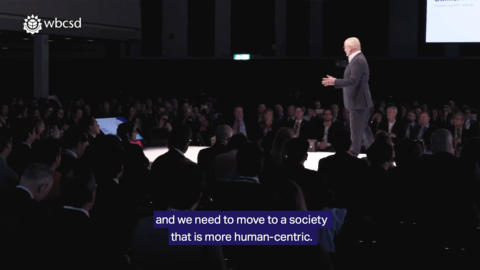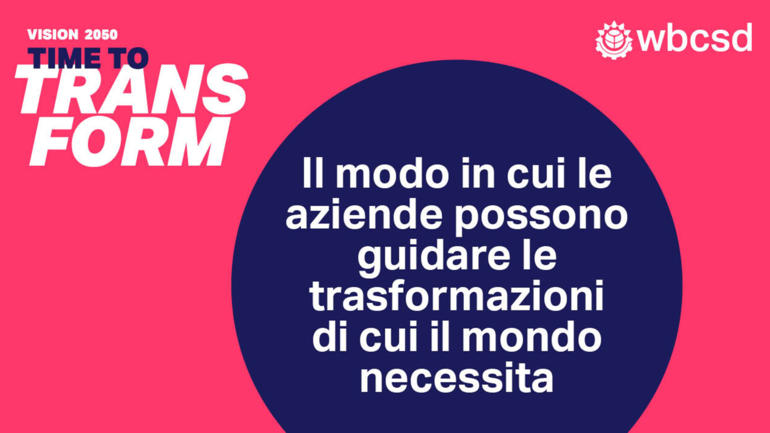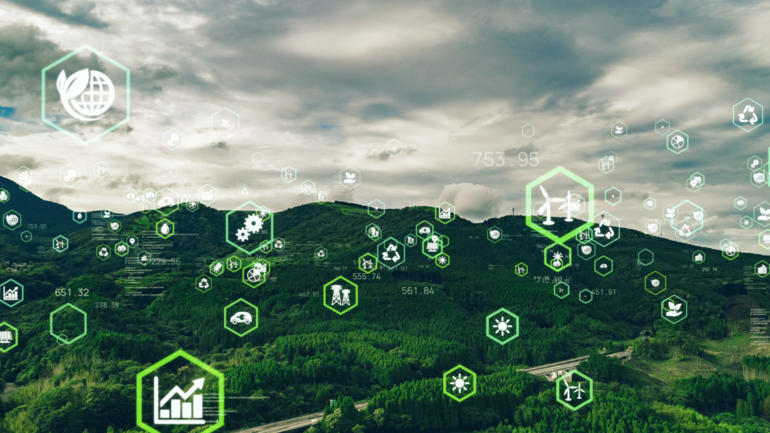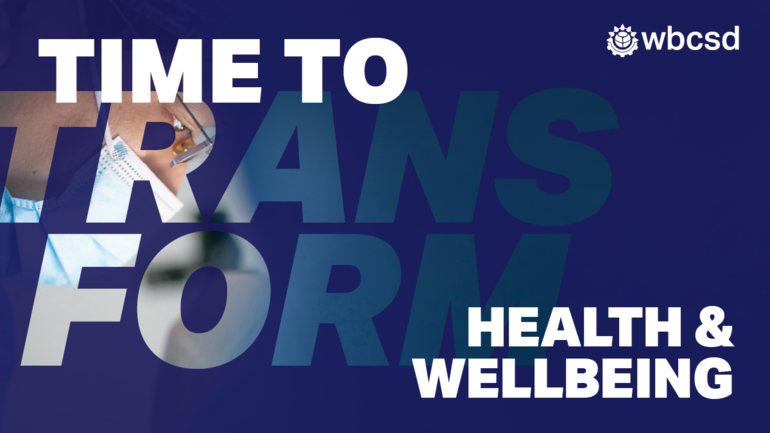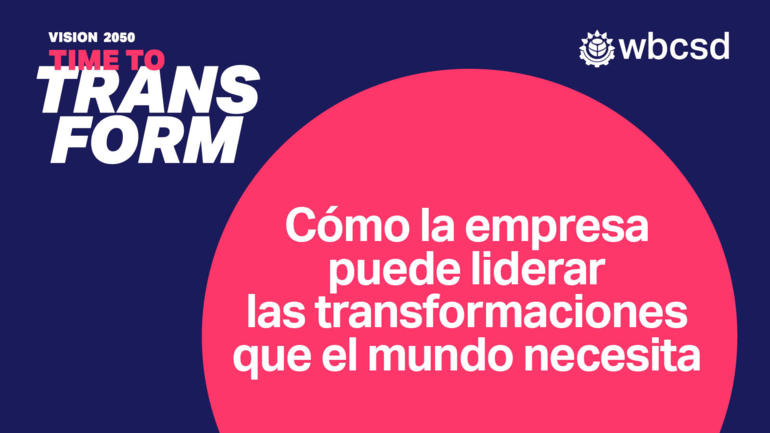Geneva, 7 May 2020: These Vision 2050 issue briefs, developed in partnership with Volans, provide business with insights that can inform the development of robust strategies: both in response to the rapidly changing context resulting from the COVID-19 pandemic, as well as continually unfolding (predictable and unpredictable) changes in the operating environment over the next decade.
The two issue briefs are interim outputs from WBCSD’s current refresh of its Vision 2050 (a landmark 2010 report that laid out a pathway to a world in which nine billion people are able to live well, within planetary boundaries, by mid-century). WBCSD is working together with 40 member companies to update this work and again provide business with a common agenda for action over the decade to come.
As part of this effort to prioritize where business needs to determinedly drive critical systems transformations, WBCSD partnered with Volans to develop research into the operating environment that business will find itself in over the next 10 years. This research went beyond sustainability challenges, exploring more generally the macrotrends and disruptions that will shape the decade and considering how these could affect business’ ability to operate successfully (as a precursor to it operating sustainably).
Macrotrends & Disruptions shaping 2020-2030
From the research, we developed a set of macrotrends and disruptions that business needs to work within, take account of a plan for. We have selected 12 macrotrends, across demographics, the environment, economics, technology, politics and culture. In addition, we have proposed 10 “wildcard” disruptions that could plausibly materialize during the 2020s, resulting in significant impacts. Indeed, some of them already have, and already significant impacts are still snowballing.
The consequences of COVID-19 on the decade ahead
Following the rapid escalation of the COVID-19 crisis in March 2020, WBCSD and Volans used our 2020-2030 research as the foundation for further exploration of the longer-term consequences of the COVID-19 pandemic. The issue brief explores the systemic vulnerabilities being exposed by COVID-19 and how the crisis could shape the next decade through its interaction with existing demographic, political and cultural divides as well as by accelerating existing trends. In addition, we have looked at some lessons from the 2008-9 financial crisis responses to show us how COVID-19 responses could affect the next 10 years and beyond. We conclude with an initial overview of the various ways in which business can support efforts to build back better.
We are pleased to share both issue briefs today, and extend our thanks to the Vision 2050 members and our External Review Committee of global thought leaders for their valuable insights. As well as the downloading the issue briefs, you can watch the sessions that were held as part of WBCSD’s open virtual event series, featuring speakers from ERM, Fujitsu, the Global Environment Facility (GEF), Nestlé, Novo Nordisk, PwC and Shell.
The Vision 2050 project will be releasing further issue briefs in the coming months to help companies navigate the challenges of responding to the socio-economic turmoil unleashed by COVID-19, whilst maintaining (and increasing) ambition on sustainable development goals. We will be taking a deeper look at how COVID-19 can catalyze a systemic shift towards stakeholder capitalism, and developing guidance on the steps business can take to make itself more resilient to future shocks (as well as more sustainable). These issue briefs support the broader WBCSD program of COVID-19 response projects.
Peter Bakker, President and CEO, WBCSD, commented:
“Together, these issue briefs provide business with a clear-eyed view of what the 2020s might have in store, so that it can develop more effective strategies for how to respond and make progress on our Vision 2050 of 9+ billion people, living well, within planetary boundaries. Thinking about the way that the future unfolds will help business to better harness the momentum created by tailwinds and be more resilient and adaptive in the face of inevitable headwinds.”
Louise Kjellerup Roper, CEO, Volans, commented:
“The COVID-19 pandemic is clearly a profoundly disruptive event with far-reaching consequences for global health, politics, economics and more. But it also has the potential to be a catalyst for positive change – an opportunity to confront the broken norms and incentives at the heart of our current model of capitalism and make substantive reforms. Volans has been delighted to work with the WBCSD Vision 2050 team on these issue briefs, exploring what the decade ahead has in store for us, and how we can build back better post-COVID-19.”
For more information please contact, Julian Hill-Landolt, Director, WBCSD Vision 2050 Refresh





